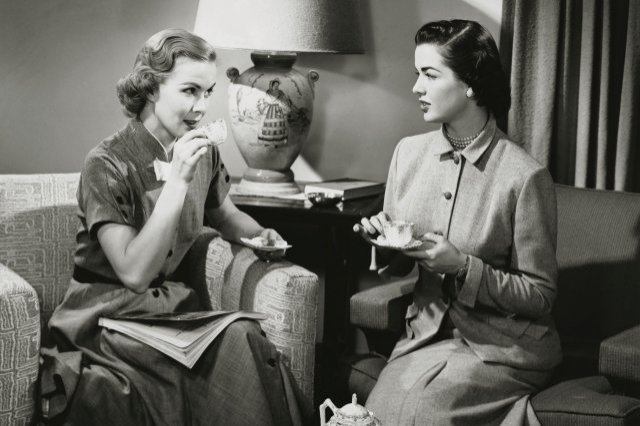Drinking tea has played a central role in the lives of women across the globe for centuries… It’s hard to imagine a world without tea, but like much of written history, the tale of women’s roles and how instrumental they were in shaping tea commerce as we know it today, has not been well told.
Women like Mary Tuke (1725–72), who was born in England, was among the first tea merchants to build a chain of tea stores – the equivalent of Starbucks back in the day – and did so amid many jail threats and fines, since many (mainly men) were vehemently opposed to a woman running a business.
Oura Kei from Japan (1850–80s), was pivotal in creating the Japanese export tea market, while Catherine Cranston (1880–1930) from Scotland built a renowned chain of tearooms in Glasgow, which led to hotels setting aside space for afternoon tea. The list of female tea innovators and influencers, such as Elizabeth Petrovna (Russian), Penelope Barker and Alva Belmont (both American) goes on and on.
To the powerhouse activists of the 1700s to 1900s, having tea wasn’t just an idle pastime; these women used ‘tea gatherings’ to mobilise support for women’s rights, which over time paved the way for the feminine sex to identify outside of the home by obtaining loans to start small enterprises, owning property and frequenting establishments without the companionship of a man.
One could argue that the political March on 9 August 1956 by more than 20 000 South African women to propose amendments to the “pass laws”, was preceded by countless cups of tea shared among these brave women, who included Lilian Ngoyi, Helen Joseph, Rahima Moosa and Sophia Williams, among others, to whom we pay tribute during Women’s Month.
Another remarkable woman who propelled our locally grown tea, rooibos, to the top of the global tea charts is Dr Annique (Annekie) Theron, fondly known as the “mother of rooibos”.
She first stumbled upon rooibos’ healing power 50 years ago (in 1968) when she gave her allergic baby a bottle of warm rooibos tea to drink. It was the only thing that settled her allergic reaction – to even mother’s milk – since her birth. Curious about rooibos, Dr Theron set out to investigate whether there could be more to the tea. Since it was difficult to prove her findings as a woman at the time, she struggled and faced great adversity, but couldn’t ignore the miraculous change in her daughter’s health and was dogged in her pursuit to scientifically explore and verify rooibos’ healing properties.
more on krugersdorpnews.co.za




